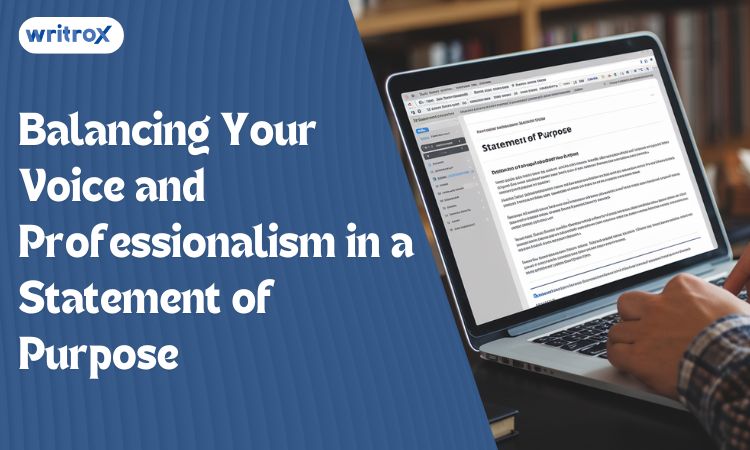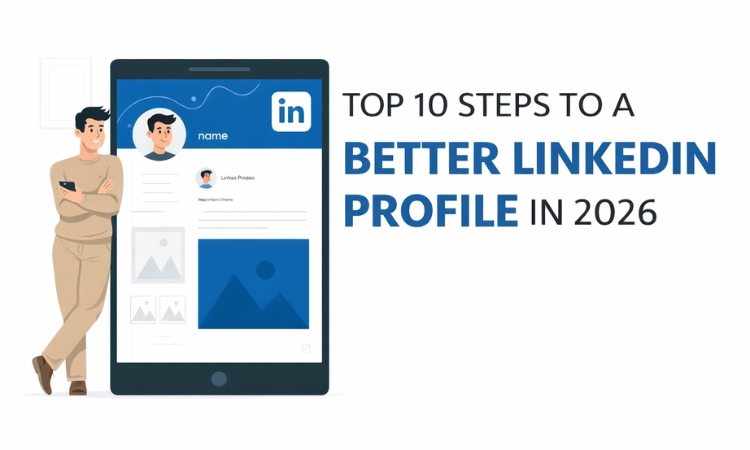A Statement of Purpose (SOP) is one of the most important documents in your application process, be it for any academic program, internship, or professional opportunity you are applying for. It is a story that the individual can tell, to articulate the unique personal reasons, history, and objectives that make this person compelling. The SOP tells what you are at more than the GPA, so it gives the admission board or hiring team an idea of how creative and enthusiastic you are.
A Statement of Purpose (SOP) is an essential part of the application for graduate programs, internships, or any formal/vocational course. Your SOP provides a glimpse into your desires, achievements, and contributions. Finding that happy medium, combining the best of your actual voice with professionalism can be difficult but it is crucial if you want to make a good first impression. In this article, we will cover the major things around SOP writing and specifically how to incorporate your journey in a formal and best way.
Why a SOP? – Purpose of a SOP
A Statement of Purpose is your chance to show such committees and hiring managers who you are beyond just good grades and high test scores. You want to explain your academic and career objectives, why they are well-suited for the position or program you have in mind, and demonstrate your uniqueness. Thus a good SOP should present your drive, and credentials and put forth clearly what you have to bring to the table making it sound even more logical for their acceptance.
- Defining Your Unique Voice: SOP is your voice that makes you unique among other applicants. It is representative of your personality, beliefs, and values. Narrow down your unique voice by answering the following:
- Self-Reflection: Give yourself time to look back over your path. What events in your life have served to influence the academic and vocational path you are currently working on
- Be Authentic: Write the way you speak. Do not use a voice or some stylistic idiom that does not match your personality. It resonates more with readers and helps create a compelling, personal narrative.
- Clarity and Conciseness: You should be expressing your voice, but only in a clear and concise manner. Scrape the jargon and unnecessarily complex words from your content.
Importance of The Right Language and Tone
Choosing the right language and tone is necessary to sustain professionalism in your SOP Here are some guidelines:
- Clear & Professional Style – Use a clear, professional style, but keep it approachable. Do not use slang or be overly familiar since this will cause people to take your application less seriously.
- Keep your tone positive and enthusiastic – Keeping your tone positive and enthusiastic helps you connect with your audience and makes your message more engaging. It would bring enthusiasm and dedication through the tone of the SOP.
- Appropriate Tone: Have your tone match with the business-type or job that you are applying for. Take an approach that reflects the culture and values of the institution.
Tips to Blend Personal and Professional Elements in a SOP
- Lead with a Hook: Kickstart your SOP by telling a compelling story from your personal experience, an interesting life event, or an intriguing perspective on the discipline at hand. This is personal and a huge attention grabber immediately.
- Make Personal Experience Relevant to Professional Ambitions: If including personal stories, make sure they relate directly to your academic or professional pursuits. Describe the impact of these experiences on your goals and relate them to the job or program you are applying for.
- Present skills and accomplishments: Make use of personal stories to demonstrate any abilities, skills, or characteristics the student has developed. Use these experiences to demonstrate how you are prepared for the challenges of the program or role you are studying/job.
- Retain a Professional Tone: While keeping things personal, make sure that the content is still appropriate to the situation. Do not beat around the bush or use poetic words, and most importantly do not spoil your SOP by talking too much about a particular essay.
- Customise the Personal Elements to Suit the Audience: Make sure that your SOP is personal but it should appeal to the ethos and aspirations of the program or the school. Adapt your narrative to match what the program looks for — whether it is leadership, innovation, or collaboration.
Common Mistakes to Avoid in an SOP
To draft an SOP, a few things you should never get wrong is; take note of these errors
- Being vague: Some general statements do not tell the committee much about your path and ambitions. The more details and examples you cite, the clearer the picture of you they will get.
- Overly formal or casual language: finding a balance is an art. You should never sound too stiff, and serious, nor too relaxed and friendly. The admissions committee must see the professional in you, but your personality should be visible as well.
- Ignoring the prompt: an SOP always gets tailored to a school or the job’s demands. If you do not respond directly to the prompt or fail to link your goals and mission, it weakens your application.
- Neglecting The Structure: A structured SOP makes it easy to read. Coherently organize your thoughts, using intelligent transitions between paragraphs that help the reader along. If you think you are unable to make a proper SOP then you can take help from sop writers and get it done professionally.
Conclusion
Striking that balance between your voice and professionalism in a Statement of Purpose is a complex one, but also calls for self-reflection and coherence as well as meticulous editing. By grasping the need for an SOP, establishing your authentic identity, and combining personal with professional traits—you have a persuasive story that appeals to admission management committees & hiring professionals.
Adopt the editing process and be clear of some most common SOP writing mistakes to make your Statement of Purpose stand out, moreover do not forget to follow the statement of purpose format so that it’s easy for you to follow the professional format













